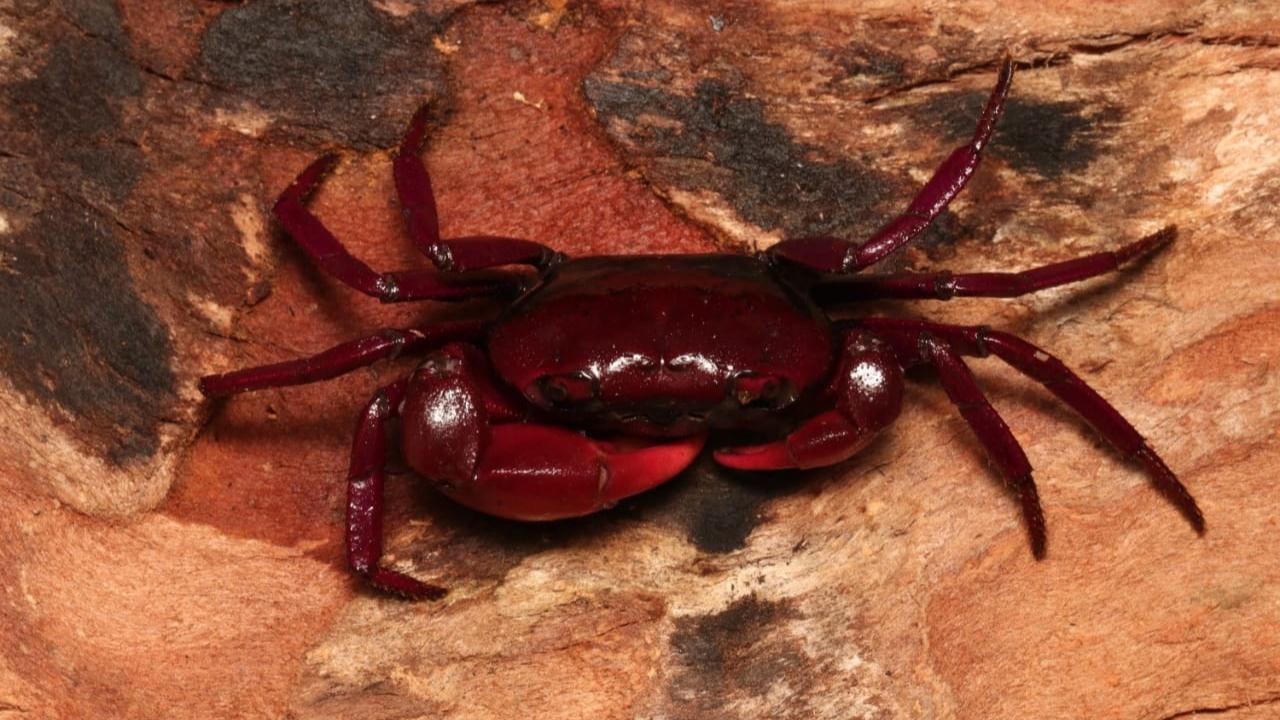Sameer Kumar Pati from the Zoological Survey of India, alongside wildlife researcher Tejas Thackeray and Swapnil Pawar, have identified a new species of crab, 'Ghatiana sagunelenta,'

Pic/Akshay Khandekar
In a significant discovery, three researchers, including Sameer Kumar Pati from the Zoological Survey of India, alongside wildlife researcher Tejas Thackeray and Swapnil Pawar, have identified a new species of crab, 'Ghatiana Sanguinolenta,' in the Belakopa village of Sirsi district, Karnataka.
ADVERTISEMENT
"We first encountered this crab in 2020 during a research study in the Western Ghats area. Our research has spanned the last three years, during which we identified significant differences from other species, leading to the publication of our research paper in the international journal Zootaxa on Wednesday," explained Researcher Swapnil Pawar from the Thackeray Wildlife Foundation (TWF).
The newly discovered crab species was named 'Ghatiana Sanguinolenta.' Its name is derived from the Latin word 'Sogunelenta,' signifying red or blood-colored, due to the crab's distinct red hue and male genitalia, which distinguish it from other species within the Ghatiana subgenus.
This species is known to inhabit Maharashtra, Goa, and the Western Ghats of Karnataka. It predominantly resides in water collected within tree trunks and exhibits heightened activity during the rainy season. Their diet consists of insects and algae, and male and female crabs share the same coloration.
Notably, in 2018, the researchers from the Thackeray Wildlife Foundation discovered a new genus of crabs known as 'Sahyadriana.' The 'Ghatiana Sanguinolenta' marks the twenty-first new crab species found by TWF researchers. Each discovery contributes to the biodiversity of the Western Ghats, underscoring its ecological importance.
"As new species continue to be discovered in the Western Ghats, it is imperative that this region undergoes further research. Simultaneously, it is crucial to conserve the Western Ghats by avoiding developmental projects," emphasized Pawar.
 Subscribe today by clicking the link and stay updated with the latest news!" Click here!
Subscribe today by clicking the link and stay updated with the latest news!" Click here!







